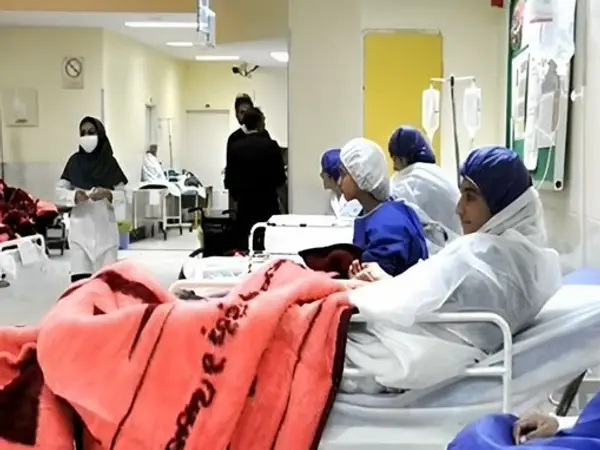More than three months after gas attacks began on girls' schools in Iran, the Ministry of Education has not shown any serious reaction to the shocking events.
According to Khabar Online news website in Tehran, at least 1,200 girls have been poisoned by the attacks just in Qom and Boroujerd. Other chemical attacks have also occurred in Tehran, Karaj, Kermanshah and Ardabil.
Khabar Online wrote on Saturday that the education ministry's silence is questionable as it has been quick to react to students singing a funny folk song at a school in Ghaem Shahr (Shahi) in February. The reaction in that case started from firing the teacher and forcing her to apologize on Instagram for "failing to take care of pupils."
The report said that explanations offered so far by officials are generally excuses made usually in the form of news fabrication. The only official reaction by Education Minister Yousef Nouri was dismissing the news of the attacks as "rumors".
Most other Iranian politicians either flatly denied the reports or like President Ebrahim Raisi blamed "the enemies" for the attacks. Many others who usually pass off-hand judgement on almost every development blaming intelligence agencies of the United States or Israel have followed Raisi.
Media linked to the government, including the Tehran Municipality's Hamshahri, implicated opposition leaders such as Prince Reza Pahlavi, women's right activist Masih Alinejad and National Council of Resistance leader Maryam Rajavi and published their pictures as "culprits." Obviously, a few hardliner loyalists believe such accusations in Iran.
But blaming “enemies” also begs the question of where more than a dozen intelligence agencies are when foreign agents can roam around throwing chemical gases into schools.
Meanwhile, the minister implicitly asked the media to push the news of the chemical attacks under the carpet so that the ministry could make up for the educational backlog resulting from the pandemic.
Some hardliners such as the Islamic Coalition Party member Ahmad Karimi-Esfahani flately denied the reports and videos about the gas attacks. He said that those reports were fabricated by "the enemies." The politician further claimed that "it has not been proven yet that anyone has been poisoned" and that "the attacks exist only on social media." This comes while the government has been sending tens of ambulance buses to the schools that were attack and videos of students at hospital are going viral on social media and foreign-based Persian media.
Earlier, vigilante leader Hossein Allahkaram told reporters in Tehran that the news of the attacks were "part of a plot to destabilize and disintegrate Iran and keep the Women, Life Freedom movement going."
Karimi-Esfahani also claimed that disseminating the news of the poisonings were part of "a plot hatched by the enemies." He also claimed that a deputy education minister's statement about "the attacks being launched by a group who opposes the idea of girls going to school was later denied."
Some former Iranian officials such as former Culture Minister Ataollah Mohajerani claimed on social media that the advocates of Women, Life Freedom Movement have deliberately poisoned the students. More shameless accusations are levelled by officials who claimed "the students have poisoned themselves!"
Reformist media in Iran, however, characterized the attacks as "organized crime" and urged the officials to offer convincing explanations rather than levelling fictitious accusations.
